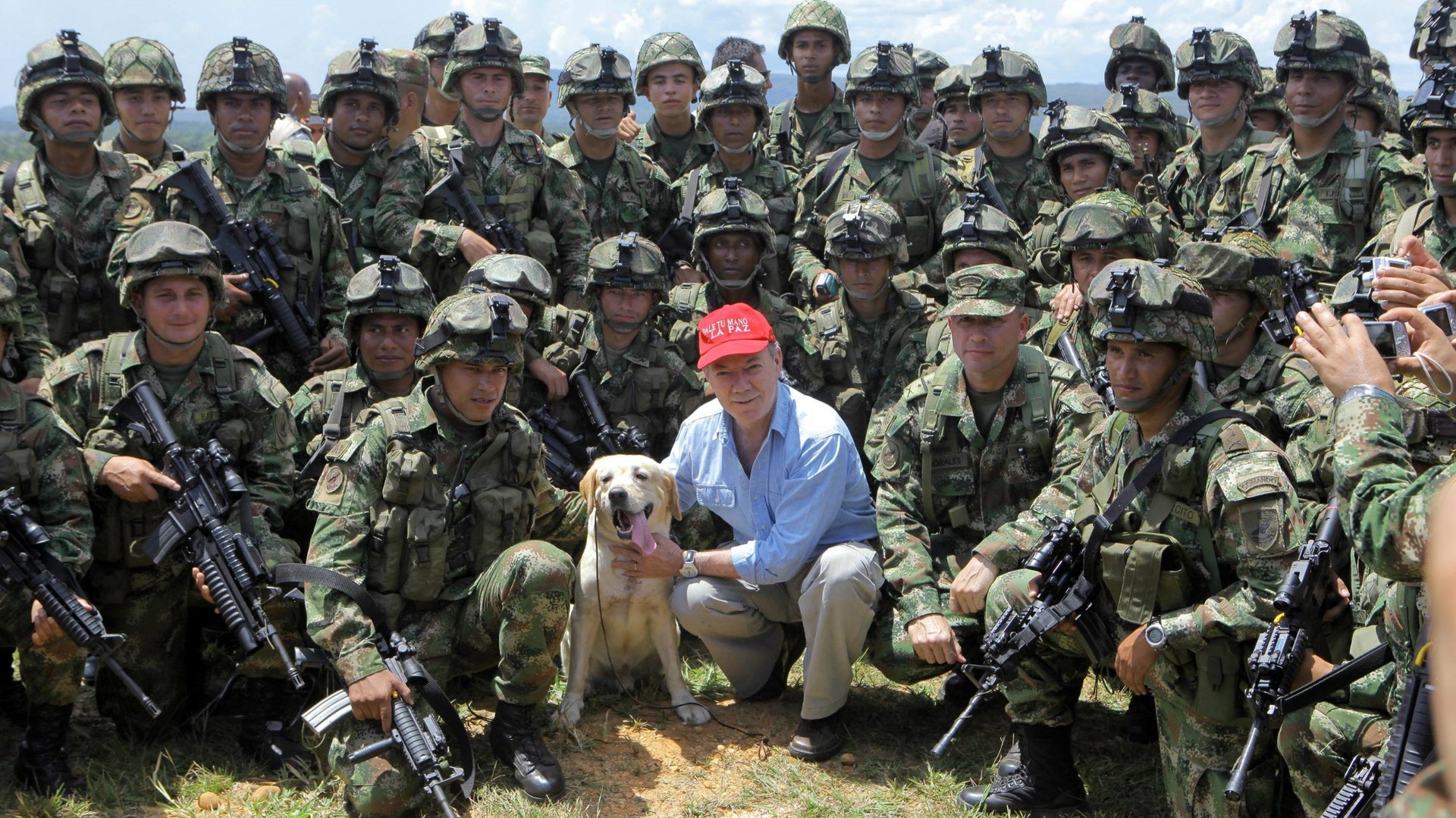The only way Colombia’s President Santos can get his groove back: A peace deal with FARC
Emotions are running high in Colombia. The International Court of Justice awarded Nicaragua jurisdiction over disputed (and potentially oil-rich) waters on Nov. 19, prompting an outcry across the country. An angry President Juan Manuel Santos declared last week that Colombia’s “heart and soul” had taken a hit, promised to negotiate with Nicaragua’s Daniel Ortega, and announced that the country would not adhere to the Hague’s rulings in the future. It’s a huge shift for the normally statesman-like Santos, who had overwhelmingly focused on foreign affairs during his first two years in office, smoothing over prickly relations with Venezuela and Ecuador, finalizing a free trade agreement with the US, and promoting Colombia’s request to join the OECD.


Emotions are running high in Colombia. The International Court of Justice awarded Nicaragua jurisdiction over disputed (and potentially oil-rich) waters on Nov. 19, prompting an outcry across the country. An angry President Juan Manuel Santos declared last week that Colombia’s “heart and soul” had taken a hit, promised to negotiate with Nicaragua’s Daniel Ortega, and announced that the country would not adhere to the Hague’s rulings in the future. It’s a huge shift for the normally statesman-like Santos, who had overwhelmingly focused on foreign affairs during his first two years in office, smoothing over prickly relations with Venezuela and Ecuador, finalizing a free trade agreement with the US, and promoting Colombia’s request to join the OECD.
But Santos’s cry to rally around the Colombian flag could reflect his growing unease with his own political future. A poll released by Ipsos-Napoleon last week shows that Santos’s favorability ratings have plummeted to only 45%—a drop of 15 percentage points in the span of two months and nearly 30 points from November 2010. An overwhelming 69% of respondents say they think the country is headed in the wrong direction, pointing to worries over high unemployment (recorded at 8.9% in October by the national statistics agency), citizen insecurity, and corruption. Most worryingly for Santos, 61% of respondents disagree with Santos’s pending (and likely) decision to run for a second term.
With the 2014 presidential elections on the horizon, such numbers are probably spooking Santos’s political advisers. The announcement of peace talks with the Revolutionary Armed Forces of Colombia, known as FARC, last September provided a temporary boost for his government, but Colombians are still pessimistic about the prospects for peace. (Talks resumed in Cuba this week.) And despite respectable growth rates and nearly $14 billion of foreign direct investment in the country this year, it’s clear that Colombia’s strong economic performance – largely driven by its booming oil and mining industries – isn’t trickling down to benefit the average Colombian.
More than ever before, Santos needs a peace deal with the FARC. An agreement would cement his name in history as the president who ended over 50 years of armed conflict and virtually assure his reelection. Perhaps more importantly, it would breathe life into Colombia’s battered security reputation and foster investment well beyond risk-tolerant mining and oil industries, with new forays into tourism, finance, food production, and retail. According to Finance Minister Mauricio Cardenas, a peace agreement could push GDP growth up by as much as 1 or 2 percentage points – putting Colombia on track with the positive regional growth stories of Peru and Panama.
Santos oversaw the loss of coveted maritime territory to Nicaragua. He won’t want to lose another shot at the presidency.